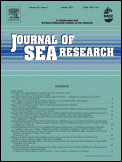|
1) ICZM
2) Hydrodynamics
3) Ecology
Main Approaches:
-
Trophic interactions
Analysis of stable isotope signatures to establish the
estuarine food web and evaluate its seasonal dynamics
-
Molecular Evolution
Assessing evolutionary responses to climate change
-
Eco-physiology
Laboratory experiments on physiological performance in
relation to abiotic conditions, namely temperature, with
organisms from widely separated populations along a
latitudinal gradient
-
Dynamic Energy Budgets modelling
To integrate information obtained from field and
experimental studies across the species geographic
distribution range, in relation to temperature and food
conditions
-
Phylogeography studies
Genetic analyses to evaluate the existence of a
population structure along the species geographical
distribution
-
Population dynamics modelling
Mathematical application to ecological modelling to
understand how the population dynamics of key estuarine
species is affected by exogenous factors specially climate
fluctuations, along a latitudinal gradient
-
ICZM
Status and risk analyses in order to propose mitigation
and adaptation measures in a climate change context
|
|

There will be a special issue of the
Journal of Sea Research dedicated to the ECClima
Congress.
Manuscript submission date for this issue is the 30th
of April 2011.
 |
 |
Congress Secretariat
Fabiana Freitas
ecclima.congress@xxxx.xx
|
|
River Minho (Portugal) |
Skibotn, Tromsø (Norway) |
Wadden Sea (The Netherlands) |

© 2010,
Centro Interdisciplinar de Investigação
Marinha e Ambiental
website by Carlos Gil Martins,
CGMdesign.NET
congress logo by Beatriz Alão
This website is
compliant with the last builds of Microsoft Internet Explorer, Mozilla Firefox, Opera, Google Chrome
and Apple Safari




